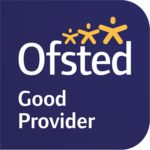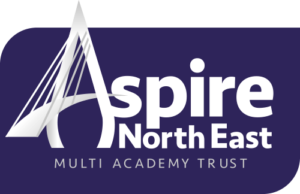Computing Curriculum Overview
Aim:
Here at Southmoor Academy, we aim to securely equip all of our pupils for life beyond school as successful, confident, responsible and respectful citizens. We believe that education provides the key to social mobility and our curriculum is designed to build strong foundations in the knowledge, understanding and skills which lead to academic and personal success. We want our pupils to enjoy the challenges that learning offers.
Our aims are underpinned by a culture of high aspirations. Through developing positive relationships, we work towards every
Intent:
The curriculum includes formal teaching through subject areas, assemblies and extracurricular activities. We regularly review content to ensure we continue to meet our curriculum aims. The ICT, Business and Computing curriculum is planned to enable all pupils to develop:
- Exceptional problem solving skills
- A high level of competency in regards to computer skills
- Basic knowledge of the difference between ICT and Computing
- Business knowledge to help understand the way businesses work in real-life situations
- Passion for the curriculum and interest in future careers in the relevant industries
Throughout our programmes of study, every attempt is made to make explicit links to careers and the world of work. In addition to subject specific links, we aim to explicitly reinforce the skills and aptitudes which support employers say are important in the workplace;
- Resilience (Aiming High, Staying Positive, Learning from Mistakes)
- Collaboration (Teamwork Leadership Communication)
- Creativity (Originality, Problem Solving, Independent Study)
The British values of democracy, the rule of law, individual liberty, and mutual respect of those with different faiths and beliefs are taught explicitly and reinforced in the way in which the school operates.
Sequence and structure:
Our curriculum is split into Key Stage 3 (years 7, 8 and 9) and Key Stage 4 (years 10 and 11). At KS3, pupils have one lesson of Computing per week.
Our Key Stage 3 Curriculum includes the following areas:
Year 7 KS3 Curriculum
Year 8 KS3 Curriculum
Year 9 KS3 Curriculum
KS4 Curriculum
KS5 Curriculum
How does our Curriculum cater for students with SEND?
Southmoor is an inclusive academy where every child is valued and respected. We are committed to the inclusion, progress and independence of all of our pupils, including those with SEND. We work to support our pupils to make progress in their learning, their emotional and social development and their independence. We actively work to support the learning and needs of all members of our community.
Teachers are responsible for the progress of ALL pupils in their class and high-quality teaching is carefully planned; this is the first step in supporting pupils who may have SEND. All pupils are challenged to do their very best and all pupils at the Academy are expected to make at least good progress.
Specific approaches which are used within the curriculum areas include:
- Seating plans are used to minimise the disruption in lessons and to optimise the support available.
- Resources well organised and up-to-date
- Displays and visual learning tools are used where necessary
- Where appropriate support from additional adults is planned to scaffold pupils learning
- Group work and discussion using think-pair-share
- Clear teacher/pupil communication.
- Feedback that allows pupils to make progress, whether written or verbal
- Independent study/homework
Reduce the reliance on memory and embed a deeper understanding of Computer Science/Business/I
How does our curriculum cater for disadvantaged students and those from minority groups?
As a school serving an area with high levels of deprivation, we work tirelessly to raise the attainment for all pupils and to close any gaps that exist due to social contexts. The deliberate allocation of funding and resources has ensured that attainment gaps are closing in our drive to ensure that all pupils are equally successful when they leave Southmoor Academy.
Approaches in ICT include:
- We use intervention effectively to ensure that all pupils are given the opportunity to succeed.
- Disadvantaged pupils are identified, and resources are available to them during lunchtime and after-school intervention sessions
- We have trips and lunchtime clubs which run each year providing all pupils with the opportunity to develop their understanding and interest in Computer Science and Business.
How do we make sure that our curriculum is implemented effectively?
- The Faculty Leader of Computing and Technology is responsible for designing the curriculum as well as subsequent monitoring and review.
- The Faculty Leader’s monitoring is validated by senior leaders.
- Staff have regular access to professional development/training to ensure that curriculum requirements are met.
- Effective assessment informs staff about areas in which interventions are required. These interventions are delivered during curriculum time to enhance pupils’ capacity to access the full curriculum.
- Curriculum resources are selected carefully and reviewed regularly.
- Assessments are designed thoughtfully to assess pupil progress and also to shape future learning.
- Assessments are checked for reliability within departments and across the Trust.
- GAP analysis is used throughout the assessment process. This then helps us to identify the pupils who are most in need of intervention sessions.
- There is frequent contact with exam boards (OCR and Edexcel) to ensure that the relevant and up to date content, courses and topics are being taught across all key stages.
How do we make sure our curriculum is having the desired impact?
- Examination results analysis and evaluation
- Analysis of destination measures
- Analysis of attendance data
- Analysis of pastoral data
- Termly assessments-analysis and evaluation meetings
- Lesson observations
- Learning walks
- Work scrutiny
- Regular feedback from Teaching Staff during departmental meetings
- Regular feedback from Middle Leaders during curriculum meetings
- Pupil Surveys





